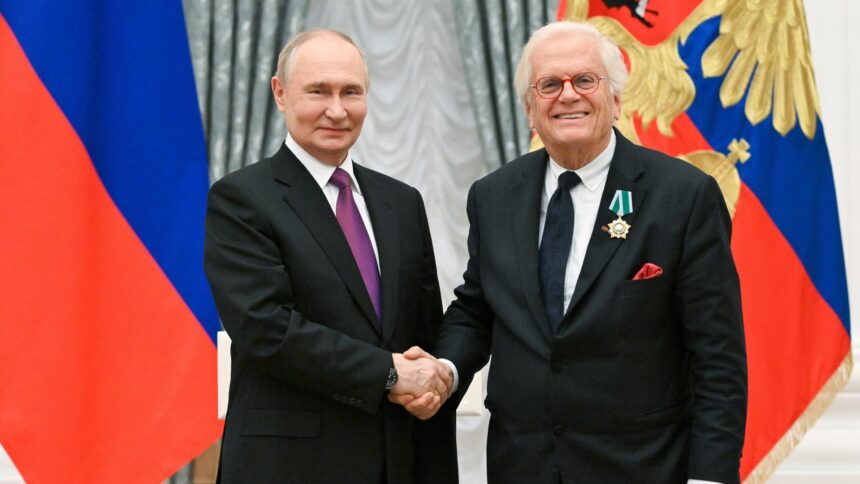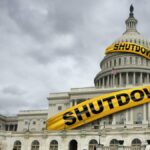Escalating Nuclear Rhetoric: The Implications of Putin’s Potential Testing
In a significant intensification of nuclear diplomacy, Russian President Vladimir Putin has hinted at the possibility of initiating new nuclear tests. This provocative stance threatens to escalate global tensions and impact discussions surrounding international security. His comments come on the heels of statements from former U.S. President Donald Trump, which have raised eyebrows among policymakers and analysts alike. With geopolitical relations already under strain due to ongoing conflicts, experts caution that this potential shift in Russia’s nuclear testing policy could have far-reaching consequences for global stability and arms control initiatives.
Putin’s Nuclear Assertions: The Global Repercussions
The suggestion by President Putin regarding renewed nuclear tests has ignited alarm among world leaders, particularly in light of recent comments from Donald Trump. This rhetoric is often interpreted as a strategic tactic that highlights the intricate nature of modern geopolitics where nuclear capabilities are increasingly pivotal in international relations. Such statements indicate that Putin seeks to reinforce Russia’s military strength while simultaneously delivering a stark warning to foreign adversaries, especially NATO allies. Analysts suggest this change in tone could trigger an arms race reminiscent of Cold War dynamics.
To grasp the broader implications stemming from these developments, several critical factors must be considered:
- Enhanced Deterrence: Renewed testing may bolster Russia’s deterrent posture against perceived threats from the West.
- International Responses: NATO and other global entities might react with increased military preparedness or impose additional sanctions.
- National Sentiment: Such declarations may strengthen Putin’s domestic support by appealing to national pride and security concerns.
The escalating discourse surrounding nuclear capabilities necessitates a careful balance between deterrence strategies and diplomatic engagement to avert miscalculations. Below is a summary table detailing recent developments concerning major powers’ nuclear activities:
| Nation | Status on Recent Nuclear Testing | Future Actions Anticipated | |
|---|---|---|---|
| Russia | Pondering renewed tests | Possible announcements imminent | |
| The United States | No active tests scheduled | Aim for treaty compliance | |
| Mainland China | No new test reports | Aiming for arsenal modernization |
Impact of Trump’s Statements on U.S.-Russia Dynamics
The recent remarks made by former President Trump regarding U.S.-Russia relations have sparked considerable debate within political circles. His questioning of NATO’s relevance alongside his seemingly amicable stance towards Vladimir Putin has raised concerns among analysts who fear it may embolden Moscow’s assertiveness globally. In this context, Putin’s indication about potentially resuming nuclear tests becomes particularly troubling as it signifies a departure from previous agreements designed to maintain stability between these two powerful nations. The ramifications extend beyond mere political posturing; they threaten the delicate balance achieved through years of diplomatic efforts.
The potential fallout from Trump’s comments encompasses various dimensions including:
- Dismantling Military Agreements: Risking reversals in arms reduction treaties.
- Tensions in Diplomacy: Heightened friction over issues like Ukraine and other regional disputes.
- Erosion of Global Stability:A resurgence in arms competition could destabilize international relationships further.
This precarious scenario requires astute navigation by current U.S leadership as they strive to align national security priorities with Trump’s contentious legacy amidst evolving geopolitical landscapes.The world remains vigilant as these dynamics unfold, underscoring our interconnectedness within global politics.
Strategies for Diplomacy: Navigating Tensions Amidst Uncertainty
- Cultivating Dialogue Channels:Create regular structured dialogues between nations that clarify intentions while minimizing misinterpretation risks.
- Mediators’ Engagements:: Involving neutral third parties can provide balanced perspectives during discussions.
- Pursuing Confidence-Building Initiatives:: Transparency-promoting measures likearms control agreements can showcase collective commitments toward peace.
Moreover,a comprehensive approach towards international relations should encompass multi-faceted outreach encouraging collaboration rather than confrontation.A strategic reassessment concerning alliances/partnerships becomes essential especially within contexts involving sensitive topics related directly/nuclear discourse.The following table outlines vital areas requiring diplomatic focus:
| Focus Area | Objective |
|---|---|
Arms Control td >< td >Limit proliferation & foster trust .< / td > tr >< tr >< td >Economic Cooperation< / td >< td >Enhance interdependence via trade agreements .< / td > tr >< tr >< td >Cultural Exchange< / td >< < / t d >>Promote understanding & reduce stereotypes .< / t d > tr > tbody > table >
“Concluding Thoughts” h 2 > |









